#planning advice
Photo


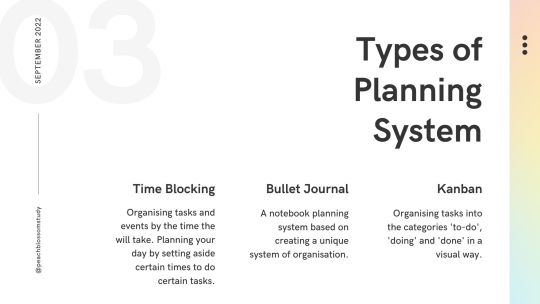
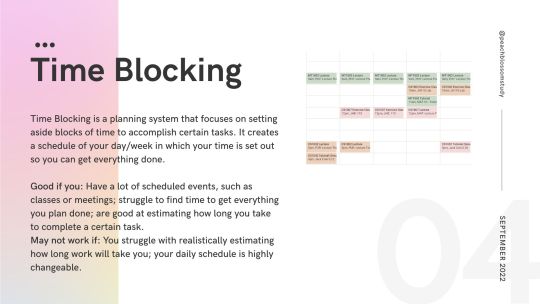
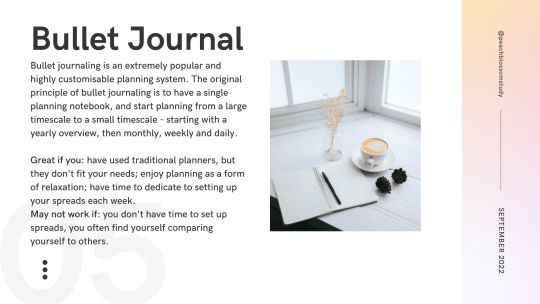


// planning systems
by @peachblossomstudy
#studyblr#planning systems#planning advice#bullet journal#bujo#planning#planner#student#studyspo#study advice#studying#problematicprocrastinator#bulletnotestudies#myhoneststudyblr#heyzainab#heysaher
870 notes
·
View notes
Text

#What to do if Your Arctic Expedition Doesn’t go as Planned#tips#tricks#life hacks#helpful hints#advice#exploration#the Arctic
4K notes
·
View notes
Text
Bingqiu roleswap where disciple Shen Yuan knows he's gay, and figures out that he has a big huge crush on his handsome Shizun, but also concludes nearly at once that he's not going to be drawing Luo Binghe's eye any time soon. Firstly, Luo Binghe is notoriously straight. Secondly, even if he weren't, he wouldn't go for his scrawny untalented nerd of a disciple! Shen Yuan's not bad looking, not before or after transmigrating, but he's neither a beautiful nor a hot manly man, and he assumes if Luo Binghe were into dudes he'd be into the same kinds of twunks that Shen Yuan likes. Guys on his own level, etc etc.
Plus Luo Binghe hated the original disciple Shen, and only started to warm up to the transmigrated version after Shen Yuan got injured in front of him trying to stop the other disciples on the peak from killing a small animal. For some reason, Luo Binghe brought Shen Yuan medicine. He got even nicer after Shen Yuan distracted the skinner demon by trying to convince it to take his skin instead of Luo Binghe's, and then again when Shen Yuan successfully fought off a demon invader -- though initially when Luo Binghe volunteered him for that job, he thought it was an assassination attempt. His heart was in his throat when Luo Binghe nearly took a poisoned blow for him, but luckily he reacted more quickly and got hit by the thorns instead. His heavenly demon blood took care of the poison, and he managed to convince everyone that he narrowly avoided getting cut at all.
Shen Yuan's careful not to read anything into it when Luo Binghe finds out about his, erm, uncomfortable dormitory situation and moves him into the side room, or when he completely messes up trying to make dinner and Luo Binghe takes over cooking and bans him from the kitchen (he swears he's not actually that bad at cooking, he just never had to use a kitchen without a microwave or an electric hot plate before...)
After all, it's not like Luo Binghe is cooking for him, he's just making food he likes and letting Shen Yuan eat it too! Because he's nice! He's way nicer than the book gave him credit for being, see, clearly Shen Yuan was correct in signing up for his defense squad, "top ten worst villains of all time" his ass that poll was nonsense...
Unfortunately, though, the plot's still gotta plot. Shen Yuan is heartbroken when the Immortal Alliance Conference rolls around and his shizun stabs him and throws him down into the Endless Abyss. Heartbroken, but not surprised. After all, it was always going to go this way, wasn't it?
But at least, now that it's done, he has some agency in how he reacts to it. He's changed the story enough that he doesn't need to go get revenge. Maybe Luo Binghe's still the villain of his story, maybe that was inevitable, but some heroes let the villains get away. Don't they? It's all part of that noble, breaking the cycle of abuse type stuff. He can be that kind of hero. He can let it go. As long as he avoids Luo Binghe altogether, it should be fine, right? It's not like he's obligated to turn people into human sticks. He asked the system, he's definitely not!
Technically he's not even required to conquer the demon realms. He just has to get out of the Abyss and the be sufficiently cool and/or tragic. Conquest is just one means of doing that, and not even Shen Yuan's preferred, since he doesn't exactly want to rule over anybody. Going around the demon realms beating up some jackasses and rescuing some damsels in distress and becoming sworn brothers with Shang Qinghua, one of the current demon kings, is suitable. He definitely doesn't want to marry any of the damsels he encounters (thank fuck the system lets him off the hook for that!)
But eventually he has to go back to the human world. Not only is it mandated by the system, but he also misses living there. The demonic realms are in many ways better than expected, plus a lot of the monsters are really cool, but he misses the weather and plants and the people he's more accustomed to being around.
He misses Qing Jing Peak, if he's being honest with himself. Shizun's cooking and the bamboo forest and the crisp mountain breezes, the comforts of home.
Not that he can actually go back there in specific. Of course not. If he did that, Luo Binghe would try to kill him, or else the system would try and make him kill Luo Binghe. Bad ideas all around. No, he can't go back to Qing Jing Peak, but he can go find someplace nicer than the demon realms at least. He just has to keep a low profile, which shouldn't be hard since the original goods did that even while actively scheming to kill his former master!
Except.
Everywhere he goes, suddenly Luo Binghe is also there?!
Good thing Shen Yuan thought to take a page out of the book of Luo Binghe's actual love interest, Liu Mingyan, and start wearing a veil. He just didn't want any randos who might have seen him at the Immortal Alliance Conference or on any of the other missions his shizun sent him on to recognize him. But one minute he's investigating a strange case in Jinlan City, and the next the streets are full of Huan Hua cultivators (Shen Yuan has no intention of joining them, that's the path the original took to getting revenge! He doesn't want revenge!), and then Luo Binghe and Sect Leader MBJ and Peak Lord SHL show up, and SY is ducking down alleys and hiding behind columns, just trying to stay out of the way until the lockdown on Jinlan lifts and he can leave.
Except...
Luo Binghe really isn't acting like himself?
He looks like he hasn't been eating or sleeping well. There are dark circles around his eyes, and something almost melancholy in his countenance. And he's dressed entirely in white, none of the usual Qing Jing greens and blues anywhere to be seen. Of even greater concern, he's being reckless. Shen Yuan can't stop himself from rushing out when he sees his former shizun get infected by a sower demon.
Luckily, it's been some years since the last time they saw one another. Shen Yuan's gained a few inches in height, so he's almost at eye-level with his old master now, and though he's still more slender than bulky he's picked up some totally new styles from training the demon realms. He doesn't move the same way he used to. With that, plus the veil, it's enough for him to quickly swallow back his words as he grabs Luo Binghe and quickly administers a cure for the sower infection.
Well, he has one of course. He wouldn't need it himself, heavenly demon blood and all, but his time running around playing hero in the demon realms meant he rescued a lot of humans from such fates. Which is hard to do if you don't have a cure to their afflictions, but between him and Shang Qinghua, sourcing such things was almost easy.
Luo Binghe looks at him like he's just seen a ghost. The other Cang Qiong sect members are alarmed by SY suddenly accosting one of their own and of course find him suspicious, so he runs away right after, and then he has to lose Sha Hualing's pursuit in the city.
But what else could he do? He manages to evade the system's attempts to railroad him into meeting Gongyi Xiao, avoids the rest of the Cang Qiong crowd, and drops some of the cure through the current Qian Cao peak lord's window to get the incident sorted out. Then he flees and puts a good amount of distance between himself, Jinlan City, and every righteous sect he can think of.
The only problem is that after this point, Luo Binghe is everywhere.
Any time Shen Yuan stays in one place for longer than a few days, Qing Jing disciples start turning up. Any time he takes a job hunting some cool-sounding monster or pursuing some interesting tome of knowledge, the better to satisfy the system, it seems like Luo Binghe has selected and gone after the exact same target! Which is especially annoying because back when SY was a disciple, Luo Binghe was always assigning him to do this stuff. Since when does his chronic homebody master have an interesting in six-tailed scorpion lemurs or ancient spiritual kilns?
What's weirder, though, are the rumors.
It seems like any time SY stops at some well-populated place and asks for the latest gossip, he has to hear about how the Qing Jing peak lord lost his beloved disciple during the Immortal Alliance Conference, and mourned like a widow, and now wanders the earth in search of solace for his grief. Seeking something, possibly even the ghost of his dear disciple.
What nonsense! Luo Binghe threw SY into the Abyss himself. He had to do it, it was the plot! And also his obligation as a righteous cultivator, confronted with a "dangerous" half-demon. Does it sting? Yes it stings! That's why SY wouldn't just forget it! Despite logically knowing it's pointless, is there some part of him that wishes his master would have chosen differently? That thinks he should have known that no matter what kind of power Shen Yuan had, he would never use it to hurt people recklessly, or harm innocents, or especially not harm... well. It's pointless, his blood condemned him, and if there is some part of Luo Binghe which regrets what happened, it's doubtless just that he unwittingly harbored a monster for so long.
Which is fine and Shen Yuan would leave it at that, if the guy would just let him!
But no. Instead he has to deal with Luo Binghe turning up and asking him questions, trying to get him to talk (SY has no hope of disguising his voice, if he says anything he's not even sure it won't crack as he comes perilously close to tears instead, so he just stays silent), and then asking for his name, asking if he's mute, asking about his background, his sect, his kin. Is his a righteous cultivator? Where did he get that sword? (NOT Xin Mo, thanks, he used that thing once and then tossed it back into the Abyss before the portal finished closing behind him -- he knows a poisoned chalice when he sees one, although knowing the plot twist about that sword from the novel sure helped.) Where did he learn those forms? Is he... does he have a safe place to go home to? Someone to tend his injuries? Make sure he eats his meals?
SY, of course, stays silent. But it's difficult. Not only because Luo Binghe asks, but because he still looks... bad. Sunken, sorrowful, desperate almost. Shen Yuan can't figure out if he knows or not. Maybe he's unsure, maybe he's looking for SY to give him a sign, so that he can figure him out and then flip a switch and try to finish the job he started.
That can't happen. If they fight, SY will win, and he doesn't want to hurt Luo Binghe.
But even if Luo Binghe's not a heavenly demon, he is a highly accomplished cultivator, and it seems he's got his own breaking points to reach. Eventually he corners SY and gets a hand on his veil, and for a moment SY is sure he's going to rip it off, see his face, and confront him all "I knew it was you, you twisted evil demon, you won't escape justice a second time" and he feels a deep, icy terror close around his lungs--
Luo Binghe lets go of the veil before he can lift it.
But then something even worse happens. Because Shen Yuan's handsome, peerless, noble master breaks down. He falls to his knees, begging forgiveness, sobbing, clutching at his head like he's being driven to madness.
It all spills out of him, then. How he pushed his own dearest disciple into the Abyss, which obviously SY already knew, but also how he was apparently qi-deviating the whole time, and his senses could not differentiate between one kind of demonic "threat" and another. How he realized what he'd done only after he regained his senses hours later, and rushed back to the place where the tear to the Abyss had opened, but could not find a way in after the one he lost. How he had betrayed and thrown away the only person who cared about him, and couldn't even explain that he hadn't intended to. How he would accept anything, any punishment, hatred, penance, or revenge, if only he could see his disciple's face once more.
SY is stunned.
Apparently, Luo Binghe hadn't rejected him for his demon blood?
Not only that, but beforehand, he seemed to have valued Shen Yuan a lot more than Shen Yuan would have credited.
Is it a trick? Is he lying? SY would have guessed so, would have assumed that Luo Binghe's plan was to lull him into complacency only to turn on him once he finally had confirmation. But somehow, he just... doesn't think this is an insincere display. His old master is too cool for this stuff! He has too much dignity to just throw it away on a scheme! There are other ways to get what he wants.
Even if it is a lie, Shen Yuan is tired of running. He's the hero. He won't actually lose, and if it comes to it, it's still in his hands to decide if he wants to spare Luo Binghe or not (he does, of course he does, even if this whole spiel is an act). Plus he's got a backup plant body in one of Shang Qinghua's greenhouses if all goes to shit.
He takes the veil off himself.
Luo Binghe, teary-eyed, stares at him as if his face is the most beautiful he's ever seen.
Shen Yuan nearly puts the veil back on. His cheeks heat up. Dear Shizun, aren't you an immortal master? A noble peak lord? Isn't it your calling to vanquish demons? Get up off the dirty ground right this minute! Where did your dignity go? Shen Yuan did not spend all those nights doing the laundry to watch his teacher dirty his knees for no good reason!
There's a quaver in Luo Binghe's voice as he points out that Shen Yuan was terrible at doing laundry. Luo Binghe had to redo it the day after, all the time.
Shen Yuan chides at him that he should have made one of the other disciples do it then.
Luo Binghe just laughs, and stays on the ground, until finally Shen Yuan has to physically pull him up. Muttering about how he's being ridiculous, what's he crying for, why's he been moping so much, doesn't he know that handsome face should never look so bereft? Then he realizes what he's saying and shuts his mouth, but Luo Binghe just looks happy for the first time in years. Since the Abyss. How is it possible that SY, who actually had to slog through that awful place, can still smile more than Luo Binghe, who didn't?
They're standing so close. Holding on to one another. Almost as if... as if the scene's tone is... well...
Oh what the hell!
Shen Yuan closes the last little bit of distance between them, and kisses Luo Binghe.
#svsss#scum villain's self saving system#bingqiu#long post#of course the plot probably interferes further then#turns out that while luo binghe was desperately trying to get sy back he accidentally woke up sy's father#who for this au let's say is sj instead of tlj#sj does NOT approve of this match and also hates all the righteous cultivators (and demons... and everyone mostly...)#but he is also busy trying to resurrect yqy or something#kidnaps sy like well I missed the chance to raise you and actually that's probably for the best but now I need your blood#for Reasons#luo binghe is not a fan of this turn of events#reverse holy mausoleum arc when SY is mostly unconscious except to sometimes throw out advice and LBH is dodging traps and villains#the pining-over-the-dead-shizun arc is probably AFTER the holy mausoleum and lbh self-destructs to rescue sy from sj's plans#sy refuses to accept this outcome he decided luo binghe was NOT to die he didn't need a redemption arc he was FINE sy DECIDED#but luckily they're in the holy mausoleum so sy grabs a resurrection artifact of some kind#has to spend a few years restoring and maintaining lbh's corpse before he can get the to actually work but it's fine#he's fine everything's fine he's GOING to get lbh back lbh is NOT ALLOWED TO DIE#luckily unhinged sy results in way less collateral damage than unhinged lbh#so mostly he just fights off mbj's attempts to honorably recover his shidi's body and offer him a proper burial#while camping out in the holy mausoleum and arguing with sj's detached body parts#y'know normal healthy behavior
1K notes
·
View notes
Text
Writing a Story from Start to Finish - Guide
I see you guys in the tags and reblogs talking a lot about how you have a desire to write, but have no clue what to write about, or where to even start figuring that out. While starting any project can be incredibly daunting, I wanted to put together a little guide to hopefully make it a bit more accessible. Be warned, this will probably be a long post.
Step 1: Form an idea
All writing begins with this: an idea. Ideas can start as small as an object, or as big as a world or cast of characters. What’s important is that your idea genuinely interests you, and makes you want to explore it more.
There are a million ways to gain inspiration for ideas, but my favourite method is a sort of brainstorm/mind map of all the little and big things you find interesting. Any tropes, characters, places, concepts, objects, animals, other stories, etc. you love—write them down. Then, start connecting the pieces. Each connection is one concept or idea you could explore further.
If this doesn’t work for you, try using some writing prompts or check out 15 ways to spark new ideas.
If you are a planner, proceed to Step 2. If you are a pantser, skip to step 7.
Step 2: Create your Protagonist
Now that you have a sort of concept or inspiration to work off of, you need your main character. There are about as many ways to create characters as there are characters themselves, and each method is going to work better or worse for every writer.
At the barest minimum, all your protagonist needs is a Goal to work towards, a Reason for wanting it, and a Flaw that keeps them from having it right away.
These three things can form a baseline character. Consider what the thing they want, why they want it, and what’s keeping from it says about them as a person.
Rapunzel (from Disney’s Tangled) wants to see the ‘floating lights’ on her birthday. She wants to because she believes she will learn more about herself through seeing them. Her fear over disappointing and disobeying her ‘mother’ keeps her from it.
My favourite character creation technique is actually Here—it takes you through creating character in order to create story.
If that one doesn’t work for you, try this one. It is more focused on defining traits and figuring out the personality of the character first.
Step 3: Your Plot is your Protagonist’s Arc
As stated in the character creation technique I shared in Step 2, character is plot. By that I mean, the character’s journey is the plot of the story. We’re here to see the protagonist transform because of the circumstances incited in the beginning.
So to form a plot, we need to know who the character is at the beginning, and what they need to learn by the end.
Your character’s arc is A but B so C:
A – your character and their flaw
B – The conflict they go through
C – how they change
“Obsessed with success, Jenny Beech works tirelessly to earn the approval of her strict parents and graduate top of her class, but when the new girl in town pulls her into a whole new world of excitement and fun, she must stand up for herself against her impossible standards and learn how to be a teen again.”
This one sentence has everything we need to know about this story and character: “Obsessed with success (character trait/flaw), Jenny Beech works tirelessly to earn the approval of her strict parents and graduate top of her class (goal), but when the new girl in town pulls her into a new world of excitement and fun (conflict), she must stand up for herself against her impossible standards and learn how to be a teen again (change).”
If you have these three things, congratulations! You already have a story. If you’d like, you may begin writing it now (skip to step 8). Or…
Step 4: Theme
I did a whole post on theme you should check out here. Essentially, the big takeaway is that your theme is a lesson to impart to the readers—which means it is not a question, it is an answer.
For the example given above, our theme would likely be something like, “Teens need to balance their additional responsibilities as they mature into young adults with the joy of being young and having fun.” Or, “Friends and a close social network is more important than having the best grades.” Or, “It’s important to take frequent time away from work in order to maintain one’s humanity.” Etc. Etc.
Theme is conveyed through what your characters need to do to succeed (or what they do that causes their failure). If Jenny lets loose and suffers consequences for it in the end, we’re saying that she should have stuck to her studies rather than letting herself have fun. If she lets loose and is rewarded with a greater relationship with herself and her parents, we’re saying that was the correct thing to do.
Step 5: Outlining
Now that we have a plot and a theme, we can outline our story. An outline is like a roadmap of what you’re writing. It can be as specific or broad as you want. My outlines tend to follow this structure, and I improvise the little stuff in between, but if you need to get all your ideas within your outline, that’s good too!
Just make sure your notes make sense to you so when you need to know where to go next, you have a handy tool just for that.
Step 6: Worldbuilding
Worldbuilding is probably where you’ll spend the most time because there’s just so much. However, I also find it one of the most fun parts. The minimal thing you need to know is your world’s normal, and how that normal is disrupted in the inciting incident.
Jenny’s normal is school work and trying to impress her parents. The disruption is the new girl in town.
Rapunzel’s normal is the tower and her hobbies. The disruption is Flynn breaking in.
I did a more in-depth post on worldbuilding here, but the basics is just ask questions, explore consequences, and do plenty of research.
Which brings us to…
Step 7: Research
This can also be done after your first draft, but can’t be skipped entirely. It’s important when trying to convey experiences that may not be wholly your own, or unique perspectives, that you understand the context behind those things in the real world.
Once again, ask questions, talk to people, and remain open to what you find.
Step 8: We can start writing now
Now that you have all your planning ducks in a row (or have a good inspiration to jump from) it’s time to start writing! Either go from the outline you built, or just try out scenes. I have some tips for actually writing the dang thing that I’ll put here:
Let me know how your writing goes, good luck!
#writing#creative writing#writers#screenwriting#writing community#writing inspiration#books#film#filmmaking#writing advice#writing masterlist#writing a story from start to finish#novel writing#planning
3K notes
·
View notes
Text
DPXDC Community Service Mentor
After Dan's redemption arc and subsequent chilling out, the observants still feel he hasn't paid back for what he ruined, and decided that rather than incarcerate a perfectly nice guy, he's going to have mandatory community service.
And thus, Dan Phantom is shunted off into the mentor program for shitty powerhouses known as Marvel Duty.
So when Billy Batson is chosen and meets his new head mates, he's faced with morally questionable mythical figures such as Zeus, Hercules, Solomon, Atlas, Achilles, Mercury and,,, some guy named Dan???? Who, for the record, gives horrible life advice.
-
Billy: Batman kinda scares me.
Dan: oh, he's one of the easier ones, actually. Just go after him first real quick when he has no reason to suspect you, worked real well.
Billy, very concerned: ...what?
Dan, doesn't realize how insane that was: what?
-
Billy: How do I get rid of this rogue? He's really persistent!
Dan: kill him.
Billy: NO!
-
Dan: That rich guy, the Wayne one.
Billy: yeah?
Dan: don't let him get your genetic material, crazy billionaires are an epidemic.
Billy: what the hell happened to you?
-
Flash: so what were the crusades like, did you participate on either side?
Billy, put on the spot and panicking: uhhhh
Dan: say you were in China, Kublai Khan was trying to relive his grandfather's glory.
Billy awkward as hell: oh I was in China for that. Kublai and all that jazz.
Billy: were you alive in ancient China? You sound American?
Dan: I am, time travel.
Billy, confused: oh...
#dan phantom#billy batson#captain marvel#dpxdc#dcxdp#most of dan's shitty life advice is to kill people#but he eventually chills out when billy's plans work out sand murder#billy on the other hand vets tempted sometimes.
2K notes
·
View notes
Text
Given how Sceleritas Fel prompts Durge to kill their lover in the game, most posts and fics I've read feature him being against Durge getting involved with Gortash, romantic or otherwise, because they need to focus on their mission. Totally makes sense, probably what happened given what we see in game.
But. What about wingman Sceleritas Fel? Just for the hilarity of it all. Maybe he deems the Chosen of Bane worthy enough of his master's attention, maybe he just views the whole thing as a chance to further enhance Bhaal's power. In any case he's determined to help his master bang Gortash, cue murderous socially stunted Durge taking romantic advice from their psycho, even more socially maladjusted butler in order to seduce Gortash.
"You should shower in some blood before meeting with Lord Gortash, dear master, it does wonders for your skin and brings out your eyes"
"Why, yes, I do think Bane's chosen will appreciate your thoughtful gift, my dark master. Nothing quite says romance like a dozen bloody hearts in a box"
"I'm sure Lord Gortash enjoyed your date together, oh vile master, who doesn't love a bit of ritualistic slaughter? Why, the way you disemboweled your last victim was simply sublime! If that didn't prompt him to make a move it may just be he's a bit of a prude..."
#meanwhile poor gortash has no one and is left with ketheric for advice#gortash: “should I unbutton the shirt further? or is that too slutty?”#ketheric (wishing for the sweet embrace of death): “...can we please go back to our evil plans for world domination?”#baldur's gate 3#dark urge#enver gortash#sceleritas fel
928 notes
·
View notes
Note
Sir Ganondorf, how do I stop hating myself?
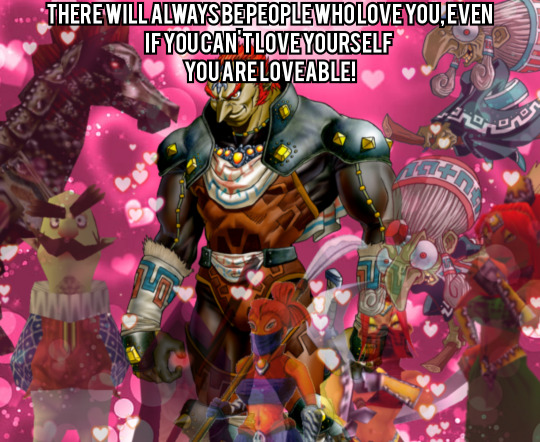
#i did NOT plan the spacing well. sorry#loz#the legend of zelda#tloz#ganondorf#good advice ganondorf#good advice
416 notes
·
View notes
Text
Planning my first bday trip. I’m trying to stick with it and not give up on myself I actually want to make this a good birthday but it’s hard 😭 who has any good planning advice?
0 notes
Text

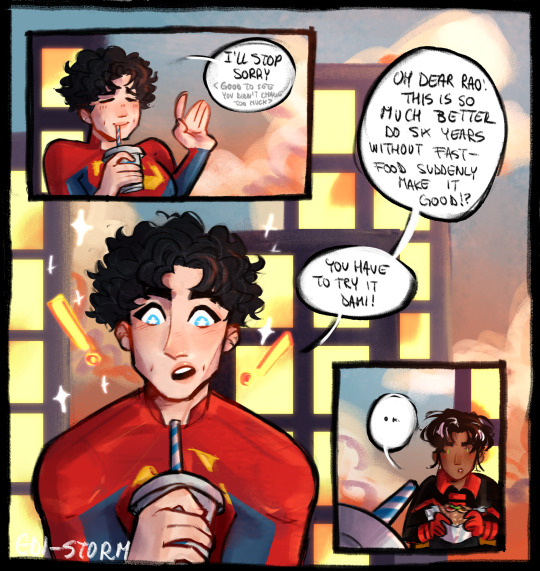
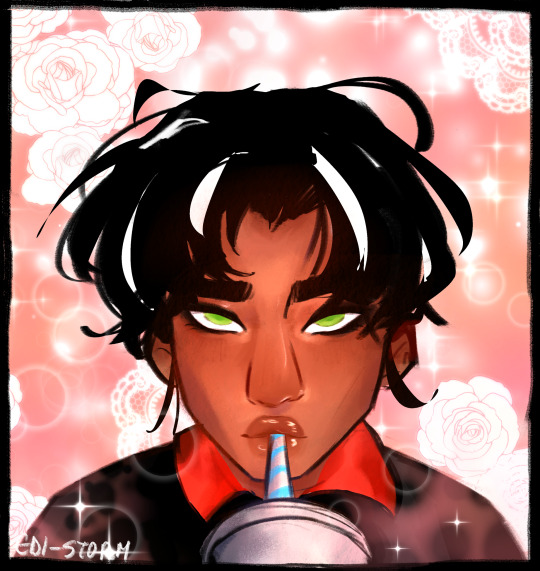
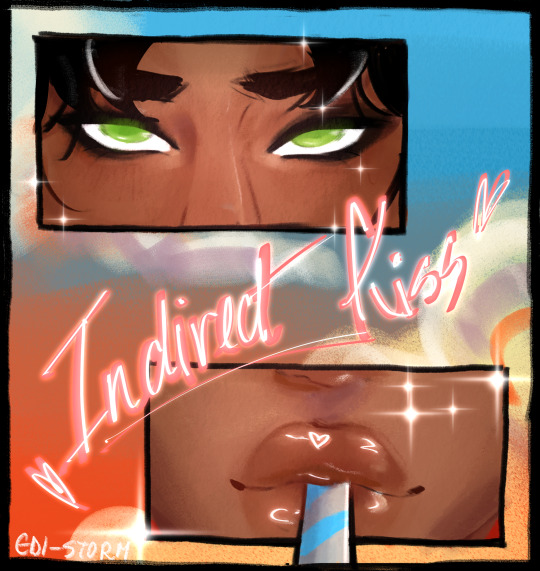

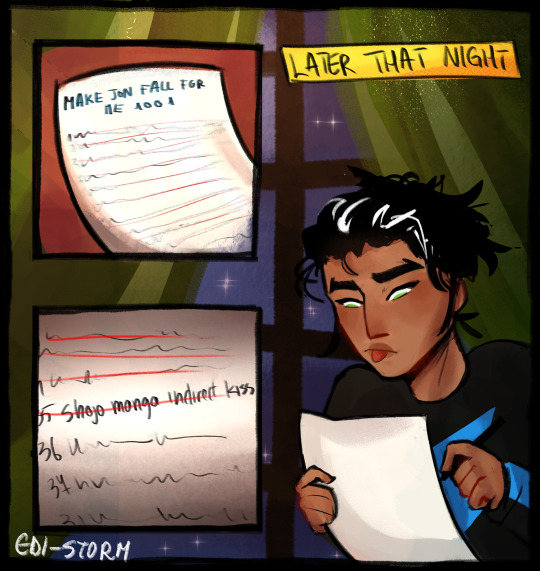
Bonus :
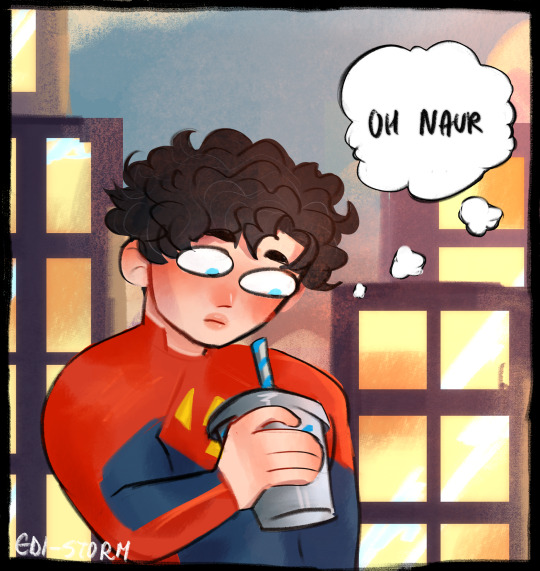
Day 1 - The first time (indirect kiss featuring shojo manga sparkles)
@super-sons-week-2023
#its all planned yall#Damian is taking love advice from shojo manga#i have mixed feelings about long hair damian#super sons week 2023#supersons#damijon#dc fanart#damian wayne#jon kent#superboy#dc#dc superboy#damian x jon#jonathan kent#jondami#comic#damijon comic#fă comic#shojo manga#shojo manga meme#damian fanart#damian robin#damian al ghul wayne#superboy jon#robin#artists on tumblr#clip studio paint#batburger#supersonsweek2023
980 notes
·
View notes
Text
Conducting a War
So, your story takes place during a war. Maybe your characters are experiencing war or maybe they're waging war against other characters or groups. Likely, you are not a general or expert in warfare. How do you write a story that is set during a war?
Who's fighting who?
The first, most obvious, step is to know who is fighting whom and why. Wars are between groups of people. They can be a small clan, a massive nation, or even an entire planet or galaxy. Two characters fighting it out are not considered "at war" because they are representing themselves and settling an individual dispute, even if it is a high-stakes dispute.
Why are the parties in your story fighting? There are a lot of different reasons why two groups of people would go to war against each other, but most wars are over resources at their center. Disputes over land and borders, over who gets what crops and for what price, and even religious wars are usually about the resources available and scarcity. So when you're talking about war, you need to know what either side wants. Just like a character, your war parties need to have desires and stakes.
"Resources" can mean just about anything that society needs. Food, fresh water, opportunities for trade, minerals, metals, building materials, and wealth are all examples of resources your war parties can fight over.
What does it take to wage war?
Wars require resources too. It's not just about getting resources but spending resources as well. When nations go to war in the real world, there are opportunities for people to make exorbitant amounts of money and wealth by taking advantage of a wartime economy.
The parties waging war need people to fight their battles. They need to pay those people, arm them, feed and clothe them, and transport them to where they need to be. Where does the government or person in charge get the food, armor, weapons, and transportation? Where do they allocate those scarce resources? Oftentimes in war, those in charge must make sacrifices. Is there a portion of land that the person in charge gives up to protect another portion with their limited resources?
There are unlimited stories hidden in these questions, and a large base of world-building will help to answer these questions in depth. There are many opportunities for tension and rising stakes for your war parties in the event that the opposing side makes acquiring war resources difficult or impossible.
Types of Armies
Your armies tell you a lot about the resources available to your characters and how you can build your story and plot line around the war. So I'll discuss the differences between four types of armies that exist in the real world and throughout history. These are examples; you can change or twist these examples however best suits your story.
The first is a professional army. These guys are paid and trained by the state; being in the army is their entire job. The army can fill a number of different roles other than fighting, but their purpose is to provide martial protection to the people of their nation and carry out martial orders from the government or sovereign entity in charge. Important aspects of a professional army to consider: these soldiers are paid for their work, they are trained by professionals, and oftentimes they follow a hierarchy or chain of command. Most governments provide medical care to their professional armies, but this isn't required. The soldiers can be conscripted or voluntary.
Next up is a mercenary army. This army is also paid for their services, but they are not trained by the state, and they ultimately take their orders from the organization, not the government. The government commissions the mercenary army for their services. The government does not provide most of the resources required to maintain an army. They pay for the army but don't necessarily feed, arm, or clothe them.
A fyrd is a historical term that refers specifically to the Anglo-Saxon armies raised by different Lords and Thegns to protect their lands and shires. These armies consisted of civilians and able-bodied free men from the local settlements and farms gathered by the ealdorman. They were conscripted into the service, and they lacked formal martial training. Also, importantly, their provisions and weapons were provided by the soldiers themselves. Meaning you will see fewer long swords and forged weapons for the purposes of fighting and more axes and improvised weaponry. The purposes of the improvised weaponry are primarily as other tools, such as axes for chopping wood and knives for butchery. Any horses or mules brought along for work or fighting are the property of the lords or farm owners who provided them.
A militia is very similar to a fyrd; this army consists of civilians who are paid or conscripted into service by the government but are not professional soldiers. These militias may sometimes have training from professional soldiers among their ranks, but mostly they are civilians training themselves. The soldiers provide their provisions, weaponry, and armor, meaning that the wealth has to come from the soldiers and their professional jobs and not from their martial services. The militia is a more modern term, but it is marginally different in that most militias we think of today are voluntary and not conscripted.
Battle Strategy
This is where a little research may help you. Battles behave differently depending on different factors. What technology and weaponry is available to your war parties? Are we talking about bladed weapons or guns or lasers? Is your army a professional or mercenary army, or is it more like a fyrd or militia?
When setting up a battle in your story, focus on the differences between the two armies and how that may affect their strategy toward fighting or engaging the enemy. If your fyrd faces a professional army, they may encounter some problems regarding weaponry and armor. Your fyrd will struggle to match a professional army in defending against well-made weapons and professional training. How do they work to compensate for those weaknesses?
When looking at two equally armed and trained armies, a general or battle strategist will look to the terrain to plan a battle. Generally, controlling the high ground helps in battles. If one army has a heavy cavalry presence, your opposing army may want anti-cavalry measures in place. Do they have the space to do so? Urban areas will lend themselves well to guerilla-style and urban warfare tactics. Jungles and forests will look different to hills and plains, and deserts bring unique problems to a battle that a mountainous terrain might not.
What is the battle for? Battles have a purpose; otherwise, there would be no value to the loss of troops. What is worth the risk of losing lives? Does the battle have stakes? Some stakes that might be worth conducting a battle over include taking control of a river pass, allowing naval trade and travel, cutting off control of a trade route to the enemy, or invading an important town or city to process and refine necessary materials.
Ending the War
The war will eventually end if your characters are lucky. But what ends a war? Wars usually end with agreements between the two opposing parties following surrender or extension of peaceful negotiations. Negotiating what each party needs or wants is an art in and of itself. Each party must come to the agreement that waging war further is more expensive and less rewarding than ending violent opposition with concessions made by either side.
Conclusion
Wars and battles are like characters; they have needs, desires, and stakes. Writing your characters in a war or battle will hinge on the needs and stakes of the greater war and story. Important questions to ask are: what are we fighting for? Who are we fighting? And what happens if we don't fight?
–Indy
#writing advice#writing tips#writing resources#writeblr#amwriting#writblr#writers of tumblr#writers on tumblr#writing help#writing guide#on writing#creative writing#writing#writers#writing about war#writing war#writing warfare#writing battle strategy#writing battle planning
924 notes
·
View notes
Text
one thing i see a bit with disco elysium fan script is a conflation between a failed skill check and bad advice from a skill. one of the beautiful things about DE is the skills are not arbiters of truth; successful checks won’t always lead to the correct outcomes, and a skill level being too high can impair you. in that sense, a failed passive (“anti-passive” according to wiki) wouldn’t be a skill giving bad advice, but a skill failing to fulfill its duty.
(bad example ahead) so it wouldn’t be:
LOGIC [Trivial - Failure]: Stick a fork in the toaster.
but more like:
BREAD-TOASTER: You peek into the narrow opening at the top of the electric bread-toaster.
PERCEPTION: You find a slice of bread wedged between the filaments. Smoke wafts into your nostrils. It’s burning, and you seemingly have no way of retrieving it.
INTERFACING [Challenging - Success]: The metal fork you found in the cupboard. It should be both long and sturdy enough for the job.
You: Grab the fork.
INLAND EMPIRE [Medium - Success]: The tips of your fingers tingle. This seems like a very bad idea.
LOGIC [Easy - Failure]: You are uncertain of the outcome here.
1. Use the fork to fish out the toast.
2. “This is beneath me.”
3. [Half-Light - Godly 16] Establish dominance. Fuck the toaster.
#also an extra autism tip: consider planning out harry’s stats#adds realism and also a fun way to get immersed at least imo#dont mean this as discourse or an insult#i love all the writing coming from this fandom and it’s helping me finally get into fanfic#just tryna give some advice hope it helps x#disco elysium#disco elysium skills#harry du bois#writing tips#o
1K notes
·
View notes
Text
Writing Tip - “Here’s The Plan…”
If you’re writing a scenario where your characters are about to pull off a heist or a big plot or something similar, the kind of thing where if it were a movie they’d all be huddled around a table with a map and clips of the characters pulling off their plan as one of the characters narrates it - just pause a moment
If you want your characters to succeed, keep the plan as vague as possible going in. This way your readers will be questioning what’s part of the plan and what isn’t, and it maintains suspense throughout the plan
If you want your characters to fail, explain the plan in as much detail as possible going in. This way your readers will be able to clearly recognise when a curveball is thrown and they get the satisfaction of knowing what the original plan was along with the dread of watching it all crumble to pieces around the characters. They’ll have that same sense of failure as the characters will
#heist#here’s the plan#writing tips#writing advice#writing tips and tricks#writing#writers#writeblr#bookblr#book#writers on tumblr#writerscommunity#writers of tumblr#writer#how to write#on writing#creative writing#write#writers and poets#writblr#female writers#queer writers#writer things#writerscreed#writing is hard#writing life#original writing#writer problems#writer stuff#writing ideas
162 notes
·
View notes
Text
Stripping away Supports
In classic outlining structure, the midpoint is where your MC loses all the advantages they’d relied on up until that point—allies, resources, powers, etc. In fact, this structure is used in so many films that the ‘characters fight at the midpoint’ is an easily found cliché throughout media.
However, there are other ways of stripping away your MC’s supports to achieve the same effect.
They fight
Okay I know I just implied we might want to avoid this, but why fix what’s not broke? The important part about following the ‘characters fight at the midpoint’ trope is to ensure the fight doesn’t start at the midpoint, but rather starts from the very moment the characters are seen with each other/meet. The fight should be about something that’s been brewing underneath all of their interactions from the beginning—the one thing they should’ve talked about but didn’t. The ‘elephant in the room’.
This fight is less of a fight but an unearthing of feelings, thoughts, and problems that have always been there, but have been ignored or avoided up until then. What’s the event that unearths these truths? Typically, something threatening or scary causes people to speak ‘out of turn’…
2. The protagonist chooses to go on alone
Something big happened, something so dangerous and scary that the protagonist intentionally pushes away their allies in order to protect them… Of course, later they might realize that they are stronger together anyway. This is also a bit of a cliché, but done thoughtfully can be very impactful.
3. The allies are in over their head
The reversal of the last trope, instead of the protagonist pushing their allies away, the allies decide this quest is far too dangerous and risky for them… The protagonist is abandoned by their allies. Later, these supports may return, their love for the protagonist stronger than their fear of the situation, but whatever happened must have spooked them bad enough to lead them to betrayal.
4. An integral piece they’ve been relying on has been destroyed
The hideout was found and torched, the old man’s journal was tossed into the sea, the leader/mentor/keeper of information has been kidnapped or killed. Maybe the allies and the protagonist are still together, but one important thing that’s been keeping them together or leading them has been lost, now they have to adapt and improvise on the fly if they wish to continue their quest.
5. An integral piece they’ve been relying on turned out to not be true or important
Similar to the last but with a bit of a twist. They’ve been following the wrong lead all along—where to go next now that the very foundation of their quest is crumbling beneath them?
What are some other ways of fulfilling the midpoint reversal?
#writing#writers#writing tips#writing advice#writing inspiration#creative writing#writing community#books#film#filmmaking#screenwriting#novel writing#fanfiction#writeblr#midpoint#midpoint reversal#stripping away supports#outlining#planning
579 notes
·
View notes
Text
this is why prenups are important because you have to leave her. she's not an adult. she's a child in an adult body who wants this guy to just be a walking, talking atm machine with a dick. she's clearly contributing nothing but wants him to work himself to death so that she can have a social media worthy life. this is why men need to continue asking "what does she bring to the table?" or they will find themselves in this situation.
#dating#marriage#prenups#relationship advice#adulting#financial planning#partnership#equality#marriage advice#gender roles#modern relationships#prenup agreements#financial responsibility#relationship expectations#equality in marriage#prenup awareness#financial independence#relationship goals#gender dynamics#prenup discussion#marriage equality#relationship boundaries
252 notes
·
View notes
Text
Beyond the Word Count: A Book Editor's Guide to Writing a First Draft
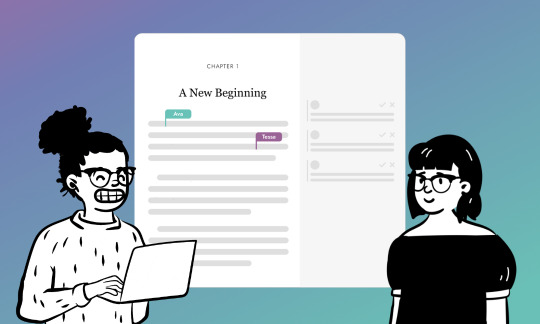
Every year, we’re lucky to have great sponsors for our nonprofit events. First Draft Pro, a 2023 NaNoWriMo sponsor, is a beautifully designed writing app for fiction writers. Today, they've partnered with Kelly Norwood-Young, former book editor for Pan Macmillan and Penguin Random House, to bring you some pro tips on writing your first draft:
In my career as a book editor, I’ve reviewed hundreds of manuscripts. I've seen the joy of authors creating compelling tales, but also how disheartening it can be to rewrite a disjointed story. I’m here to give you some strategies to address common pitfalls so that you not only reach your NaNoWriMo goal, but also lay the groundwork for a manuscript that truly deserves to be called a gripping novel.
1. Have a plan.
Even if you’re more of a ‘pantser’ than a ‘planner’, it's really helpful to have an outline. I have two favourite approaches for this: the structure-first approach, and what I call the ‘Phoebe Waller-Bridge approach’.
The structure-first approach
There are a lot of narrative frameworks for story structure, but the most foundational in Western fiction is the three-act structure. Here’s a handy guide that breaks each of the classical three acts into a day-by-day guide to NaNoWriMo:
8-day guide to Act 1
14-day guide to Act 2
8-day guide to Act 3
The Phoebe Waller-Bridge approach
I love this quote from Phoebe Waller-Bridge: ‘I’ve never thought structure first. I’ve always thought material first, jokes first, character first ... But knowing the end really helps. Then you just go as far away from the end emotionally as you possibly can.’
Sketch out your major story arcs, your character’s desires and conflicts, and the world they inhabit. The more you know your story's world and inhabitants, the less you'll stray into scenes that lack purpose or create plot and character inconsistencies.
2. Keep the story moving.
Each word needs to propel your story forward. Superfluous details or tangents that don’t serve the narrative stall the momentum you’re trying to generate for your reader.
There’s a trick you can use to move your story forward, called the question of reversibility. Ask yourself: How difficult would it be for my character to reverse their decision? The harder it would be for them to turn back, the more you’ve moved the plot forward.
3. Plant clues carefully.
Plant important elements early and make sure every element, however subtle, serves a purpose (i.e. Chekhov’s Gun).
Be sure to set up necessary components for your climax so that you can steer clear of Deus ex Machina (having that strong outline will help you here), and avoid red herrings unless they serve a clear, meaningful purpose (e.g. you’re writing a mystery and your readers expect some false leads). Misleading your readers without a payoff can erode their trust.
4. Write for the reader, not yourself.
‘There is only one thing you write for yourself, and that is a shopping list,’ insists Umberto Eco in On Literature. Even if writing, for you, is a therapeutic outlet, a form of self-expression, or a way to leave a legacy, you’re still writing to say something to someone else. Your story simply won’t be as strong if you forget your reader’s perspective.
5. Keep daily editorial notes for your future self.
While editing should wait until at least December, end each day with a brief reflection, noting any off-course deviations, potential inconsistencies, areas to research further, or moments of inspiration to revisit when you start editing.
These daily notes will be invaluable during the editing process, helping you to remember insights that are no longer fresh when you come back to the manuscript later.
6. Embrace the first-draft mentality.
There’s a lot you can do to ensure that your first draft is the best it can be before the end of November—but just as important is to understand that all first drafts have flaws.
As a book editor, I've witnessed manuscripts transform, sometimes unrecognizably, from their first drafts. Embrace the uncertainty and creative detours—because it's from this beautiful chaos that your story will find its true voice.
Kelly Norwood-Young is a seasoned book editor and proofreader with comprehensive experience across various facets of manuscript editing. Her background includes roles at Pan Macmillan and Penguin Books, extending into a successful freelance career working with award-winning authors. Kelly's work, known for its precision and sensitivity to the author's voice, has been integral to the success of both new and established writers globally.
Try out First Draft Pro: All NaNoWriMo participants can use the discount code NANOWRIMO2023 for 20% off a premium subscription to First Draft Pro! Offer expires January 31, 2024.
#nanowrimo#writing#first draft#writing advice#by nano sponsor#first draft pro#kelly norwood-young#plot#planning
355 notes
·
View notes
